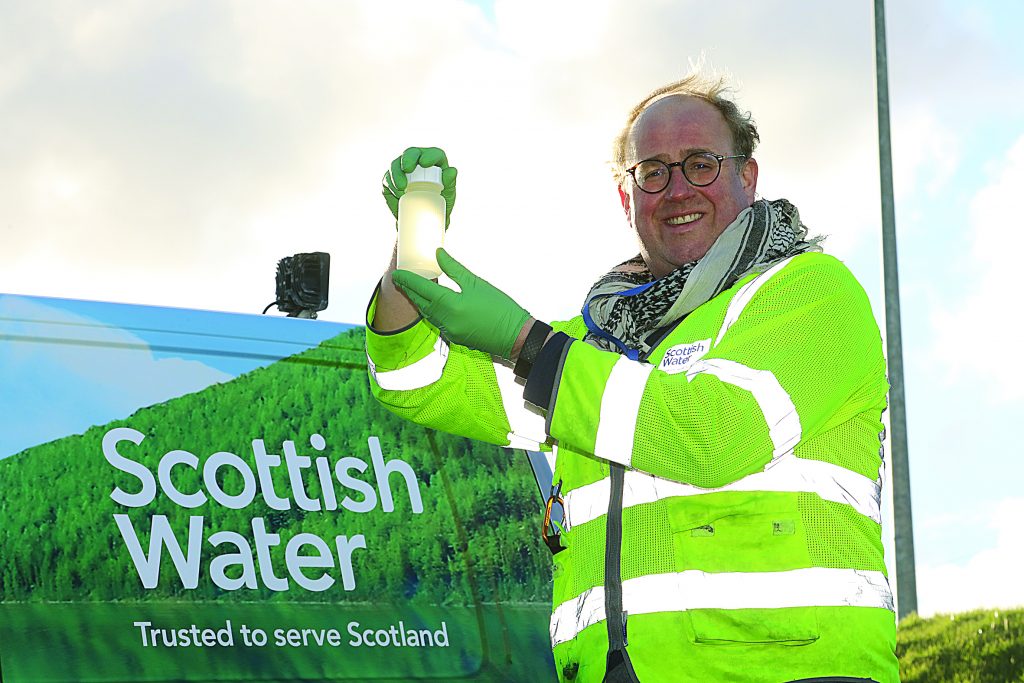Rising COVID levels detected in Orkney’s waste water

Calls for a true picture of the scale of coronavirus in Orkney have been made many times since the pandemic began — but have we been flushing the answer down the toilet, all this time?
This week, a Scottish Water employee has shared how his work has propelled him to the frontline of essential COVID-19 research, analysing Orkney’s waste water for traces of COVID-19.
According to sampling officer Graham MacDonald, an increasing amount of COVID particles has been found in water taken from the county’s sewage treatment plant during the past month, in line with the steady rise in cases the county has experienced.
For the past decade, Mr MacDonald has been part of the team regularly sampling and testing Orkney’s waste water and drinking water for contamination. But over the last seven months, he has regularly donned his PPE as part of a government-backed research programme aimed at detecting the spread of COVID-19.
Three times a week, Mr MacDonald delivers a sample of Orkney’s sewage to Kirkwall Airport, where it’s taken to be tested at a lab in Edinburgh as part of research aimed at detecting broken-down particles of the virus. The project, a joint effort by Scottish Water and the Scottish Environmental Protection Agency (SEPA) takes each sample from across the nation, and screens it for COVID-19 RNA — which is basically the viral version of DNA. When people are infected by the virus, they begin shedding pieces of coronavirus RNA in their waste. By analysing samples from sewage treatment plants, they have been able to create an online interactive map charting the level of COVID-19 being found in 12 health board areas across Scotland.
“When you flush your toilet, it goes in the sewer and then it’s pumped from Kirkwall,” the sampling officer explained.
“There’s a couple of booster stations, and basically it gets screened. Any toilet roll or plastic, the screens try and remove that. Then, when it gets to the sewage treatment plant, it’s basically just raw sewage.
“What we’ve got is called a spot analyser. It’s like an automatic pump, and every hour it will take a small amount out of that. So basically, what you’ve got is a representative sample over 24 hours.”
The project, which began last May, with support from the Centre of Expertise for Waters, University of Edinburgh’s Roslin Institute and Heriot Watt University, has so far provided mostly negative results for COVID-19 in Orkney’s waste water. During the past month, however, more and more of the county’s samples have been reading positive for the virus. Indeed, only two of the 11 samples from Orkney taken between January 5 and January 26 have given a completely negative result.
While this is not the first time that the county’s faecal matter has tested positive for COVID-19 RNA, it does break a three-month streak of negative results. Throughout January, the number of coronavirus genes found per litre has been rising week on week, seemingly in correlation with a rising number of folk testing positive for the virus here.
Full story in this week’s The Orcadian, available now online and in local shops.

